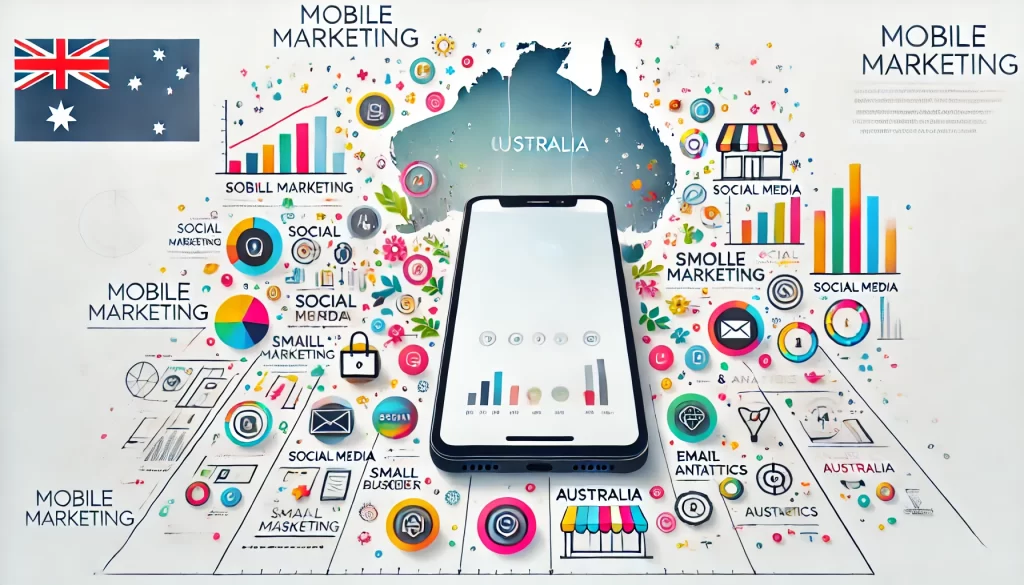If you’re running a business, it’s time to face the music – digital marketing is where it’s at.
In today’s fast-paced world, it’s crucial to have a killer online presence if you want to stay ahead of the game.
Your business should undergo digital marketing transformation or you may face the risk of losing out to your competitors.
But what is digital marketing transformation?
Digital marketing transformation is defined as the process of using digital technologies and channels to transform traditional marketing practices and improve marketing effectiveness, efficiency, and agility.
Instead of relying on traditional marketing methods like flyers and billboards, businesses use digital channels like social media, email, and online ads to reach their audience.
The purpose of this transformation is to make marketing more effective, efficient, and adaptable to the fast-paced world of digital marketing.
Digital marketing transformation is crucial for businesses that want to keep up with the competition and succeed in the online world.
But don’t worry!Transforming your digital marketing doesn’t need to be overwhelming or boring. It can be a worthwhile journey to help your business level up.
In this blog post, we’ll show you why digital marketing transformation is essential for businesses, and how you can use it to grow.
So grab a cuppa and let’s dive in!
Reach your target audience
Digital marketing allows you to reach your target audience more effectively and efficiently than traditional marketing channels.
With digital marketing, you can target specific demographics, interests, behaviours, and locations through various digital channels such as social media, search engines, email, and display advertising.
So, you can reach your target audience with the right message, at the right time, and on the right platform.
For example, if you are a fashion retailer in Sydney, you can use Facebook Ads to target women between the ages of 18-35 who are interested in fashion and live in the Sydney area.
This ensures that the retailer’s marketing message is reaching the right audience and is more likely to resonate with them.
Improve customer engagement and loyalty
Digital marketing can provide you with various tools and channels to engage and interact with your customers.
Social media, email marketing, and chatbots are just a few examples of digital channels that you can use to connect with your customers.
By engaging with customers regularly, you can build stronger relationships and increase customer loyalty.
For example, if you have a restaurant in Melbourne, you can use social media to engage with your customers by sharing photos of your dishes, running social media contests, and responding to customer reviews. This will help your restaurant stay top-of-mind with your customers and build a loyal following.
Increase brand awareness and visibility
Digital marketing can help you increase your brand awareness and visibility.
With search engine optimisation (SEO), you can optimise your website and content to rank higher in search engine results pages (SERPs), which increases your visibility to potential customers.
Social media and display advertising are also effective channels for increasing brand awareness.
For example, if you have a home cleaning service in Brisbane, you can use SEO to optimise your website for local search terms such as “home cleaning Brisbane”. This ensures that when people search for home cleaning services in Brisbane, your website will appear at the top of the search results.
Measure and optimise marketing performance
One of the biggest advantages of digital marketing is the ability to measure and optimise marketing performance in real-time.
With digital marketing analytics tools, you can track the performance of your digital marketing campaigns and make data-driven decisions to optimise your marketing activities.
Small businesses need to focus on key digital marketing metrics that can help them evaluate the success of their marketing efforts and make data-driven decisions.
Here are some of the most important digital marketing metrics that small businesses should monitor:
Website traffic
The number of visitors to your website can indicate how effective your digital marketing strategies are in attracting potential customers. You can use tools like Google Analytics to monitor your website traffic.
Conversion rate
This metric measures the percentage of visitors who take a desired action on your website, such as making a purchase or filling out a form. Tracking your conversion rate can help you understand how well your website and marketing campaigns are performing in terms of driving revenue and lead generation.
Cost per acquisition (CPA)
This metric measures the cost of acquiring a new customer or lead. By monitoring your CPA, you can optimise your digital marketing spend and focus on channels that are delivering the best ROI.
Return on investment (ROI)
ROI measures the revenue generated from your digital marketing efforts relative to the cost of those efforts. By monitoring your ROI, you can determine whether your digital marketing strategies are generating a positive return and adjust your tactics accordingly.
Social media engagement
This metric measures the level of interaction between your brand and your audience on social media platforms. By monitoring social media engagement, you can assess how effectively your social media content is resonating with your audience and adjust your social media strategy accordingly.
Email open and click-through rates
These metrics measure the effectiveness of your email marketing campaigns. By monitoring open and click-through rates, you can determine how engaging your email content is and adjust your email marketing strategy to improve engagement and conversions.
For example, if you are running a software company in Perth, you can use Google Analytics to track website traffic, user behaviour, and conversion rates.
By analysing this data, you can identify which marketing channels and campaigns are driving the most conversions and adjust their marketing strategy accordingly.
Stay ahead of the competition
In today’s competitive market, businesses that fail to adapt to the digital age risk falling behind their competitors.
Digital marketing transformation enables businesses to stay ahead of the competition by leveraging digital technologies and channels to improve their marketing effectiveness, efficiency, and agility.
For example, a hair salon in Adelaide can use digital marketing to differentiate itself from its competitors by offering online booking, social media promotions, and targeted email campaigns.
In conclusion, digital marketing transformation is critical for Australian businesses that want to succeed in today’s digital age.
Digital marketing allows businesses to reach their target audience more effectively, improve customer engagement and loyalty, increase brand awareness and visibility, measure and optimise marketing performance, and stay ahead of the competition.
By embracing digital marketing transformation, Australian businesses can future-proof their marketing strategies and achieve their business goals.
Start Your Digital Transformation with WebBuzz
Webbuzz is a digital transformation agency that specialises in marketing. We help companies leverage digital tools and techniques to reimagine their marketing and sales functions.
We also go beyond implementation and integration to ensure you develop the mindset and the ‘muscle memory’ required to harness the full power of your new capability.
Our service is for any company that’s ready to start a digital marketing transformation journey. If you’ve never fully leveraged the power of the digital channel in your marketing, you might be ready to work with an agency like us.
If you’ve tried digital marketing and failed (regardless of all the agencies you’ve worked with, or all the people you’ve hired), then there’s probably a reason. Usually that is a sign that the strategy is wrong, and that it’s time for a complete transformation.
With Webbuzz, you get a digital marketing agency that unleashes the full potential of the digital world using an integrated program of transformation change.









